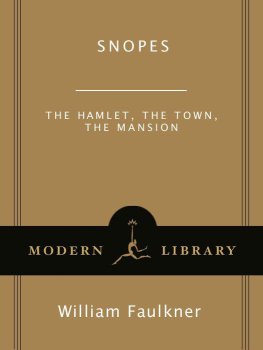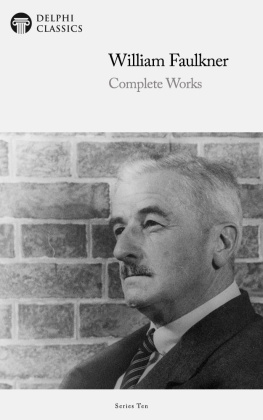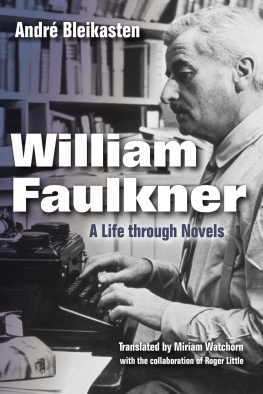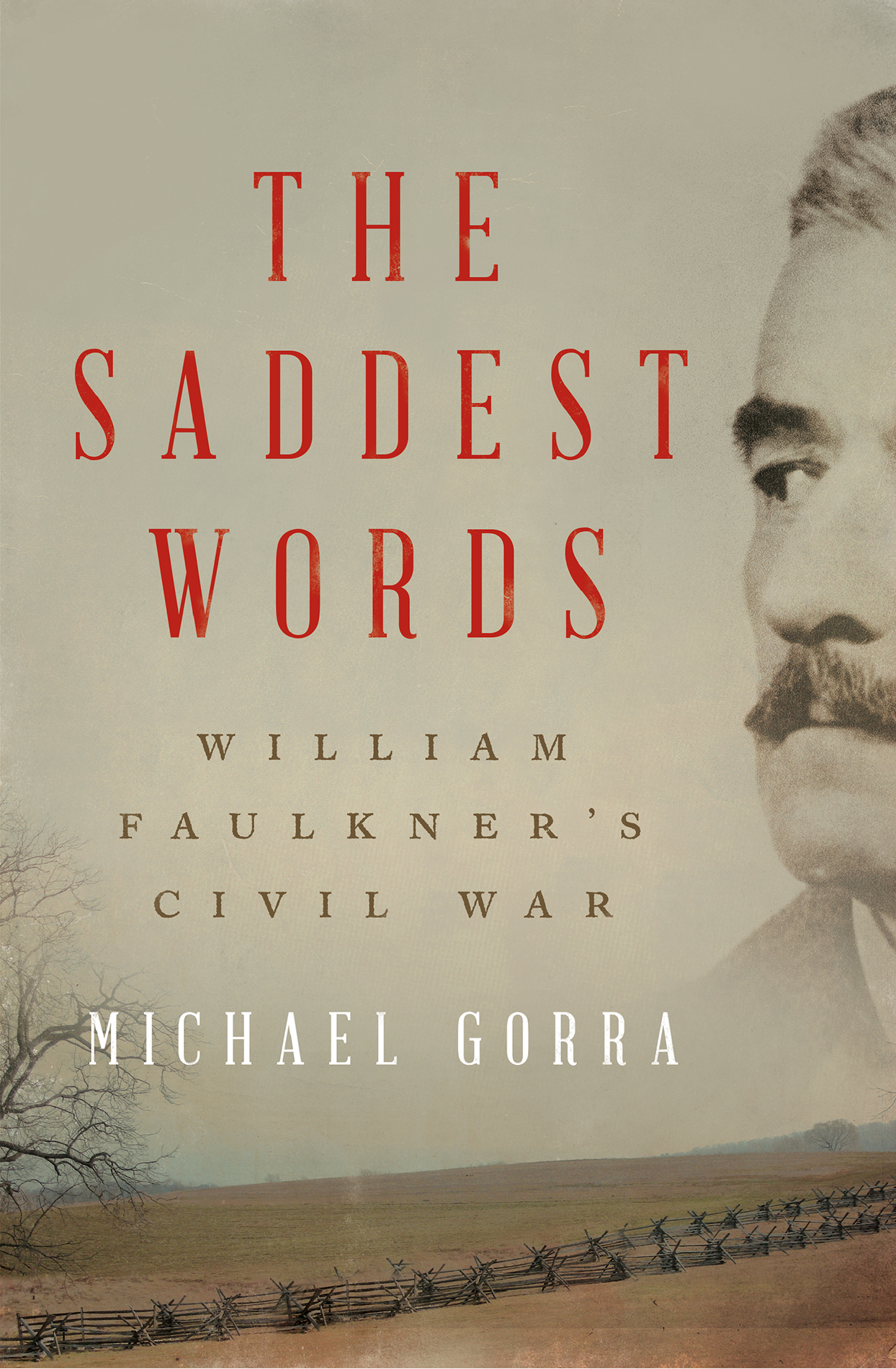Contents
Guide
Page List


THE SADDEST WORDS
W ILLIAM F AULKNER S C IVIL W AR

MICHAEL GORRA

For
BB and Miriam

Contents



THE SADDEST WORDS

W hat can the work of William Faulkner tell us about the Civil War, that central quarrel of our nations history? And what do that wars dark hours tell us about the 1949 Nobel laureate, the most important American novelist of the twentieth century? How might we use them to think about each other? The war is everywhere in the Mississippi-born Faulkner, both an inescapable point of reference in his characters speech and lives, and a determining factor in the very form of his fiction. He can no more get away from it than we can ourselves, from a conflict whose causes and consequences remain inscribed today on our every electoral map. But the war is also nowhere, in that he rarely makes it an explicit subject. At times it seems an ellipsis in his work, a lacuna; the eye of a hurricane, the still center of destruction. He doesnt do big battle scenes or follow the course of a campaign. The great generals are for him but names, not characters, and so too are Gettysburg and Shiloh; or they stand, rather, as offstage events whose reverberations can be felt forever. This book defines both the wars actual presence in Faulkners workthose moments set during the struggle itselfand his account of its undiminished echo in the decades that follow. It uses the Civil War to help us understand the whole body of Faulkners fiction, and it uses that fiction, in which the same characters and incidents recur in work after work, to help us understand that war, from secession through Reconstruction and on into our continual revision and rewriting of its history. Yet this book is also about the civil war within Faulkner himself, his own struggling attempt to come to terms with the wars meaning; which is to say, with slavery. His attemptand ours.
William Faulkner was born in 1897 in New Albany, Mississippi, a whistle-stop forty miles south of the Tennessee border. He moved as a child to nearby Oxford, the home of the states university and the seat of Lafayette County. And there he stayed. In his twenties Faulkner lived briefly in New York and New Orleans; he later spent a few years writing for the movies in Hollywood. Oxford nevertheless remained his home, his source, and he set almost all his work in and around what he called his little postage stamp of native soil. That work drew on the history of his native region from the days of the first contact between white settlers and the indigenous Chickasaw people, through the establishment of a town he called Jefferson and the growth of a plantation economy based upon cotton and slaves; through the Civil War and its aftermath and on into the world of the New South and the automobiles and bootleggers of his own day. He was a superb historian and a better mythmaker. He called his imaginary place Yoknapatawpha County, after an actual local river, and the world he made of it is as vividly detailed as that of any fictional landscape, a setting matched only by the fever dream of Dickenss London. His work contains the richest gallery of characters in all of American literature, and in his handling of time and consciousness Faulkner stands as one of his centurys most restless experimenters, in any language, with the form of the novel itself.
He was an uncompromising modernist, a difficult American counterpart to James Joyce and Virginia Woolf. Yet he also offered a distinctive regional voice: a hypnotic stylist who shaped the half-century of Southern writers that followed him, some walking in his path and others struggling to get as far away as possible. For many twentieth-century readers those strengths were enough. Forty years ago I was a new college graduate, teaching at a summer school where one of the novels on the syllabus assigned to me was his 1930 As I Lay Dying. I didnt much like it, not at first. I felt disoriented by the speed with which Faulkner switched from one first-person narrator to anotherfifteen of them in alland frustrated by my inability to tell just when the book was set; it began in a preindustrial farmhouse and ended in the glare of Jeffersons electric lights. But some things stuck. One of the books narrators told me that words dont ever fit even what they are trying to say at, and another announced that My mother is a fish. Id never read anything like it, and knew after my first class that I wanted to read more. And immediately. I wrestled with The Sound and the Fury, in which both memory and chronology appeared to splinter, and then I seemed to fall down a great well, drowning in the Jazz Age despair of Sanctuary and the Civil War stories of The Unvanquished. I read the ghoulish A Rose for Emily and both struggled and failed to understand the family history embedded in The Bear, where incest and slavery stood as one. Flags in the Dust taught me about the corporate life of what Faulkner called his apocryphal town, and at the end of that summer I felt my jaw go slack at the hall-of-mirrors named Absalom, Absalom! as though the novelist had taken a bolt gun to my brain.
I have been reading and teaching Faulkner ever since, but the novelist I read today isnt the one I read then, even if the words are exactly the same. In his lifetime and for some years after, the usual way to make sense of him was to stress the contrast between the different groups of his white characters. On the one hand were the representatives of the Old South, the descendants of slave owners and planters, like the Compson family of The Sound and the Fury and the Sartorises from Flags in the Dust. On the other were the up-from-nothing Snopes clan, erstwhile sharecroppers who in the capitalist, postCivil War world of the New South had replaced the old order. That was the view of the left-wing editor Malcolm Cowley in The Portable Faulkner, the 1946 anthology that first suggested the scale and coherence of the writers achievement. To Cowley, Yoknapatawphas old families embodied a sense of honor and tradition, and though they rarely lived up to it they were at least conscious that theyd slipped. The Snopeses, in contrast, stood as a moral infestation, gnawing like rats at the standards by which the South had lived, and Cowleys argument found its counterpart on the right in a band of writers who had emerged in the 1920s at Vanderbilt University in Nashville.











